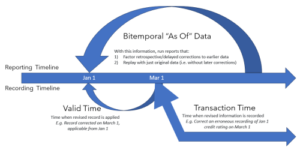
I have previously discussed how insurers are now able to build
a more accurate and holistic view of their portfolios, and we have also
looked at the technologies available to them as they work towards the levels of data maturity and automation needed to fully achieve this.
But what do insurers do with this capability once they have it?
The insurance sector is an increasingly complex and competitive place. In the general insurance market, there is strong outside competition trying to muscle in, some are trying to rewrite the rules of engaging and serving customers. Changing consumer behaviour and spending habits are driving demand for the delivery of more flexible and personalised insurance products and services, which is something insurers need to realise.
Armed with more accurate data about their portfolios and the ability to analyse that data more effectively, insurers have the capability to navigate these challenges and vastly increase the benefits that they provide to their customers and society at large. Let’s look at how they can do that.
Getting ahead of the problem
The simplest claim to process is the one that never happens. Insurers have done a lot of work in recent years moving their systems to the cloud and breaking their data out of silos in order to make it work harder and more transparently. Through integration with Internet of Things (IoT) devices, third party data providers, push messaging services, and AI and machine learning, insurers can now get into the business of preventing or reducing damage instead of simply protecting against it.
Here is an example of how this could work. Say that you have an insurer with a business customer in a location that is about to be impacted by an extreme weather event. Ahead of the event, the insurer works with that business to devise contingency plans for back up office space in case it is needed, along with measures to ensure that staff are transported away from danger and to safety. Thanks to integrations with the business’s operating systems and its other service providers, as soon as the risk is imminent, plans can be automatically implemented. The business can be proactively contacted and kept informed at all times.
This model of risk prevention alongside risk coverage is increasingly going to feature in the value that insurers can deliver to their customers, and it applies across multiple lines of business. There is demand amongst personal lines customers for warnings against leaks and damage to home heating, and there are also opportunities in areas such as cybersecurity for insurers to help customers shore up systems and alert them to new threats.
Data for good
Insurance is, and always has been, a data driven business. As a result, insurers have enormous amounts of high-quality data from which they can derive benefit not only for themselves and their customers, but also society in a wider sense.
However, the use of different categorisations or terminology for what is actually the same data is preventing industry-wide collaboration. There are offerings on the market for insurers to standardise their own data, but standardising data categorisation across the industry is still a work in progress. The sorting of pooled data remains a complex and costly process holding the industry back.
From an industry point of view, better sharing of data would mean even more accurate underwriting, better products, improved customer experience and engagement, and quicker claims processing for events that affect large numbers of customers at the same time, such as flooding.
The potential for even more good…
Going even further, insurers could also be working with governments and
advise public service providers to better understand and improve services based on local requirements. Through their historical understanding of behaviour and risk, insurers have deep insights into services that may be needed and how this will adapt over time depending on investments in infrastructure, business growth, demographic changes, and many other factors.
Insurers need to be responsible in how they might share this insight and have to make sure that they do so in a secure, ethical, and anonymised way, but the potential benefits to the public are so large that they ought to not be ignored. Doing so will require insurers to communicate openly with policyholders and educate them on what is being shared and why.
As an industry, insurance needs to come to terms with the fact that tackling complex risks is going to require as much high-quality data as possible to build accurate models, and that no single insurer or organisation will ever hold all of it at once. Overcoming this challenge is important if the industry wants to support customers and improve its own performance. The opportunity to add value over traditional insurance cover is an enormous one, but insurers need to be able to grasp it first.
- SEO Powered Content & PR Distribution. Get Amplified Today.
- PlatoData.Network Vertical Generative Ai. Empower Yourself. Access Here.
- PlatoAiStream. Web3 Intelligence. Knowledge Amplified. Access Here.
- PlatoESG. Automotive / EVs, Carbon, CleanTech, Energy, Environment, Solar, Waste Management. Access Here.
- PlatoHealth. Biotech and Clinical Trials Intelligence. Access Here.
- ChartPrime. Elevate your Trading Game with ChartPrime. Access Here.
- BlockOffsets. Modernizing Environmental Offset Ownership. Access Here.
- Source: https://www.finextra.com/blogposting/24820/could-the-future-of-insurance-not-be-in-insurance?utm_medium=rssfinextra&utm_source=finextrablogs
- :has
- :is
- :not
- $UP
- a
- ability
- Able
- About
- accurate
- Achieve
- across
- actually
- adapt
- add
- advise
- affect
- against
- ahead
- AI
- Alert
- All
- along
- alongside
- also
- always
- amongst
- amounts
- an
- analyse
- and
- ARE
- areas
- AS
- At
- automatically
- Automation
- away
- back
- based
- BE
- been
- being
- benefit
- benefits
- Better
- Breaking
- build
- business
- but
- by
- CAN
- capability
- case
- challenge
- challenges
- Changes
- changing
- claim
- claims
- Cloud
- CO
- collaboration
- come
- communicate
- competition
- competitive
- complex
- consumer
- costly
- could
- cover
- coverage
- customer
- customer experience
- Customers
- Cybersecurity
- DANGER
- data
- deep
- deliver
- delivery
- Demand
- demographic
- Depending
- Devices
- devise
- different
- discussed
- do
- doing
- done
- driven
- driving
- educate
- effectively
- engagement
- engaging
- enormous
- ensure
- ethical
- Even
- Event
- events
- EVER
- example
- experience
- extreme
- fact
- factors
- Feature
- Finextra
- First
- flexible
- For
- from
- fully
- further
- future
- Future of Insurance
- General
- get
- going
- Governments
- grasp
- Growth
- happens
- harder
- Have
- help
- high-quality
- historical
- hold
- holding
- holistic
- Home
- How
- HTTPS
- if
- imminent
- impacted
- implemented
- important
- improve
- improved
- in
- Increase
- increasingly
- industry
- informed
- Infrastructure
- insight
- insights
- instead
- insurance
- integration
- integrations
- Internet
- internet of things
- into
- Investments
- iot
- IT
- ITS
- jpg
- kept
- large
- Leaks
- learning
- levels
- lines
- local
- location
- Look
- looked
- Lot
- machine
- machine learning
- make
- many
- Market
- maturity
- May..
- mean
- measures
- messaging
- might
- model
- models
- more
- moving
- much
- multiple
- Navigate
- Need
- needed
- needs
- never
- New
- no
- now
- numbers
- of
- Offerings
- Office
- on
- once
- ONE
- only
- openly
- operating
- operating systems
- opportunities
- Opportunity
- or
- order
- organisation
- Other
- out
- outside
- over
- overcoming
- own
- party
- performance
- personal
- Personalised
- Place
- plans
- plato
- Plato Data Intelligence
- PlatoData
- Point
- Point of View
- portfolios
- possible
- potential
- preventing
- Prevention
- previously
- process
- processing
- Products
- Progress
- protecting
- provide
- providers
- public
- Push
- quicker
- recent
- reducing
- remains
- require
- Requirements
- responsible
- result
- Risk
- risks
- rules
- Safety
- same
- say
- sector
- secure
- sense
- service
- service providers
- Services
- serving
- Share
- shared
- sharing
- silos
- simply
- single
- So
- Society
- some
- something
- soon
- Space
- Spending
- Staff
- Still
- strong
- such
- support
- sure
- Systems
- tackling
- Technologies
- terminology
- terms
- Thanks
- that
- The
- The Future
- the future of insurance
- their
- Them
- themselves
- There.
- These
- they
- things
- Third
- this
- threats
- Through
- time
- times
- to
- towards
- traditional
- transparently
- understand
- understanding
- underwriting
- use
- value
- vastly
- View
- wants
- Way..
- we
- Weather
- What
- What is
- which
- why
- wider
- will
- with
- Work
- working
- works
- would
- years
- You
- zephyrnet












